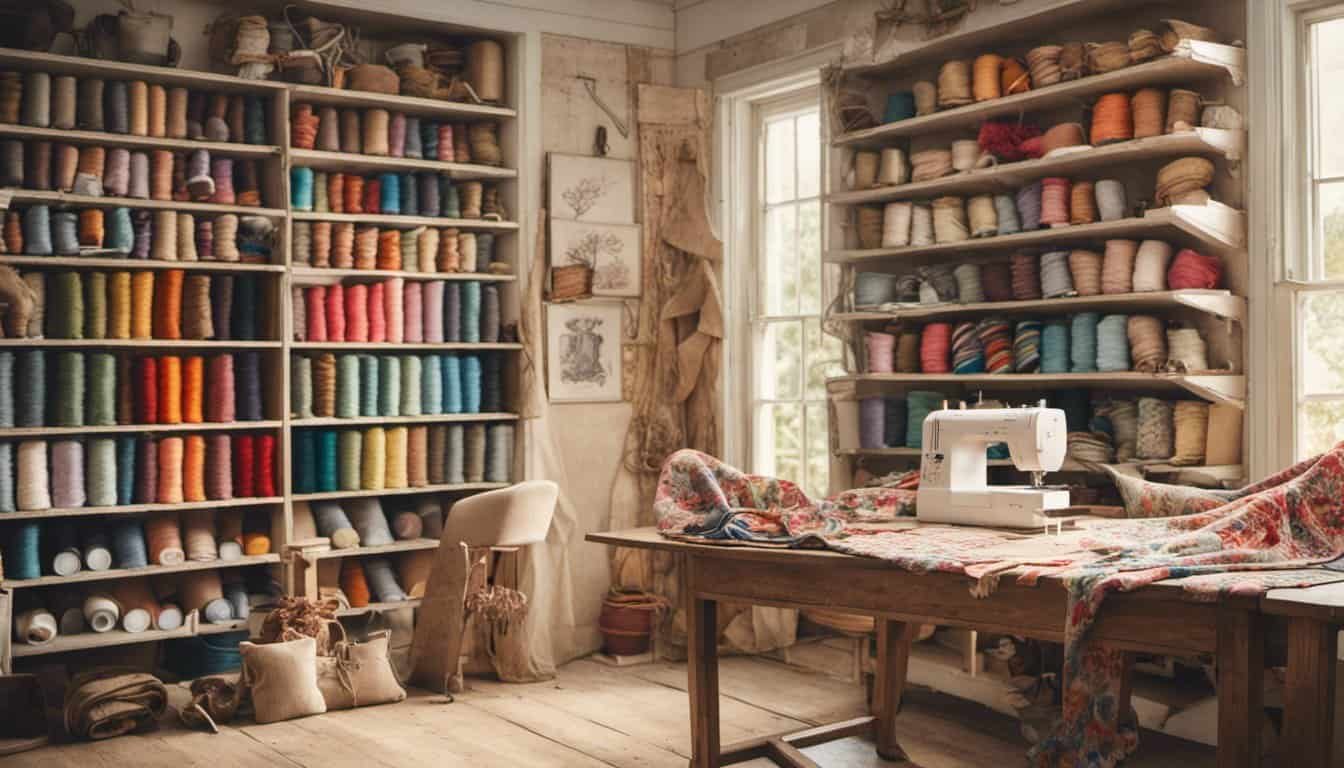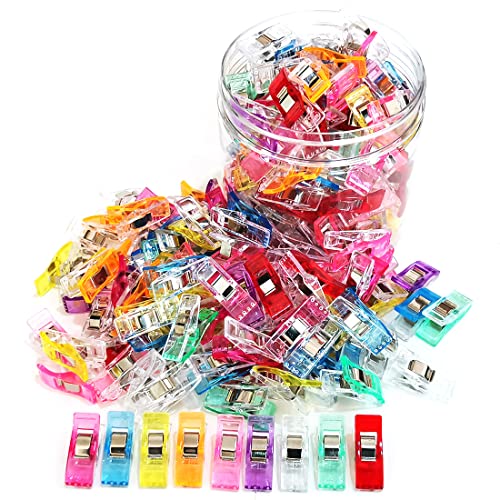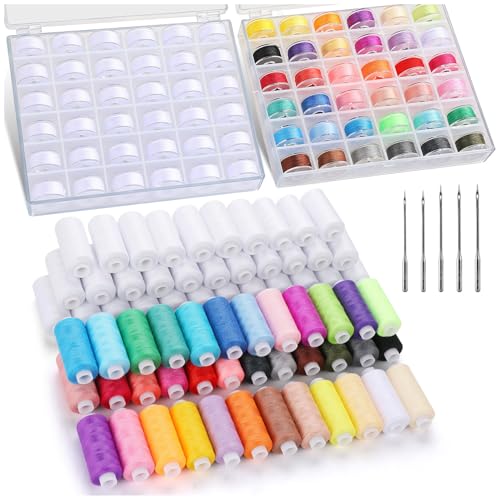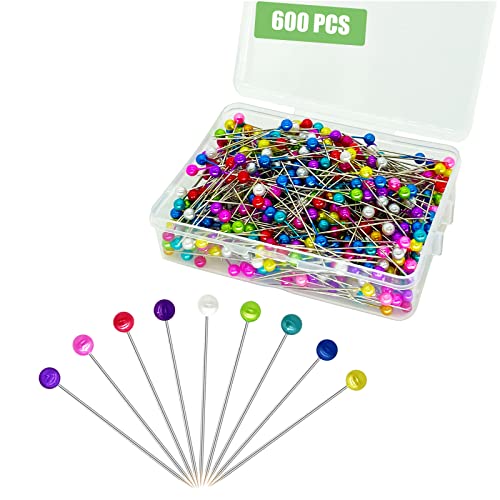Are you new to the world of sewing and wondering what the string used in sewing is called? Look no further! In this article, we’ll explore the common term used for sewing string and why it’s an essential tool for any sewing project. Whether you’re a beginner or an experienced seamstress, understanding the terminology is key to becoming a confident and skilled sewer. So, let’s dive in and discover what sewing string is called!
When it comes to sewing, the string used is commonly referred to as “thread.” Thread plays a crucial role in holding fabric pieces together and creating secure and durable stitches. It comes in various colors, thicknesses, and materials, allowing you to choose the perfect thread for your specific sewing needs. Understanding the different types of thread available and their characteristics will help you achieve professional-looking results in your sewing projects. So, let’s unravel the mystery behind sewing thread!
The Basics of Sewing Thread
When it comes to sewing, embroidery, knitting, or any craft that involves fabric, you’ll need to have the right materials on hand. One of the most important items in your sewing toolbox is sewing thread. Thread is what holds your fabric pieces together and creates durable stitches. But what exactly is this essential sewing material called, and what do you need to know about it? Let’s dive into the basics of sewing thread.
What is Sewing Thread Called?
The string used in sewing is commonly referred to as thread. It’s a thin strand made from various materials like cotton, polyester, silk, or nylon. Thread comes in different colors, thicknesses, and finishes, allowing you to choose the right thread for your sewing project.
Types of Sewing Thread
There are a few different types of sewing thread to choose from, each with its own characteristics and best uses:
- Cotton thread: This is a popular choice for general sewing projects. It is strong, versatile, and comes in a wide range of colors. Cotton thread works well with natural fabrics and is ideal for everyday sewing.
- Polyester thread: Polyester thread is known for its durability, good colorfastness, and resistance to shrinkage. It is perfect for sewing projects that will be exposed to frequent washing or are made from synthetic fabrics.
- Silk thread: Silk thread is a luxurious option that is strong, smooth, and creates fine stitches. It is often used for delicate fabrics, hand-sewing, and embroidery.
- Nylon thread: Nylon thread is extremely strong and resistant to stretching or breaking. It is commonly used for heavy-duty sewing projects, such as upholstery or outdoor gear.
Choosing the Right Thread
To achieve professional-looking results in your sewing projects, it’s important to choose the right thread. Consider the fabric you’re working with, the type of project, and the desired look and feel of the finished product. Opt for a thread that matches the color of your fabric or choose a contrasting color for decorative stitching.
Remember, the quality of the thread you use can make a significant difference in the strength and longevity of your stitches. Investing in high-quality thread will ensure that your creations stand the test of time.
Now that you know the basics of sewing thread, you can confidently select the right thread for your next project. Whether you’re sewing, embroidering, knitting, or engaging
Different types of sewing thread
When it comes to sewing, choosing the right thread for your project is essential. Not all sewing thread is created equal, and using the wrong type can lead to frustrating results. Let’s explore the different types of sewing thread available and their unique characteristics:
Cotton thread
Cotton thread is a popular choice for many sewing enthusiasts. It is made from cotton fibers, which give it a soft and natural feel. Cotton thread is ideal for sewing lightweight fabrics, such as cotton and linen. It blends well with these materials, creating seamless and invisible stitches. It’s also great for sewing quilts and heirloom projects, as its natural fibers are gentle on delicate fabrics.
Polyester thread
Polyester thread is a strong and durable option for all kinds of sewing projects. It’s made from synthetic fibers, which provide excellent strength and flexibility. Polyester thread works well on both natural and synthetic fabrics, making it versatile for various sewing applications. Whether you’re stitching garments, home decor, or accessories, polyester thread can withstand regular wear and tear, ensuring long-lasting durability.
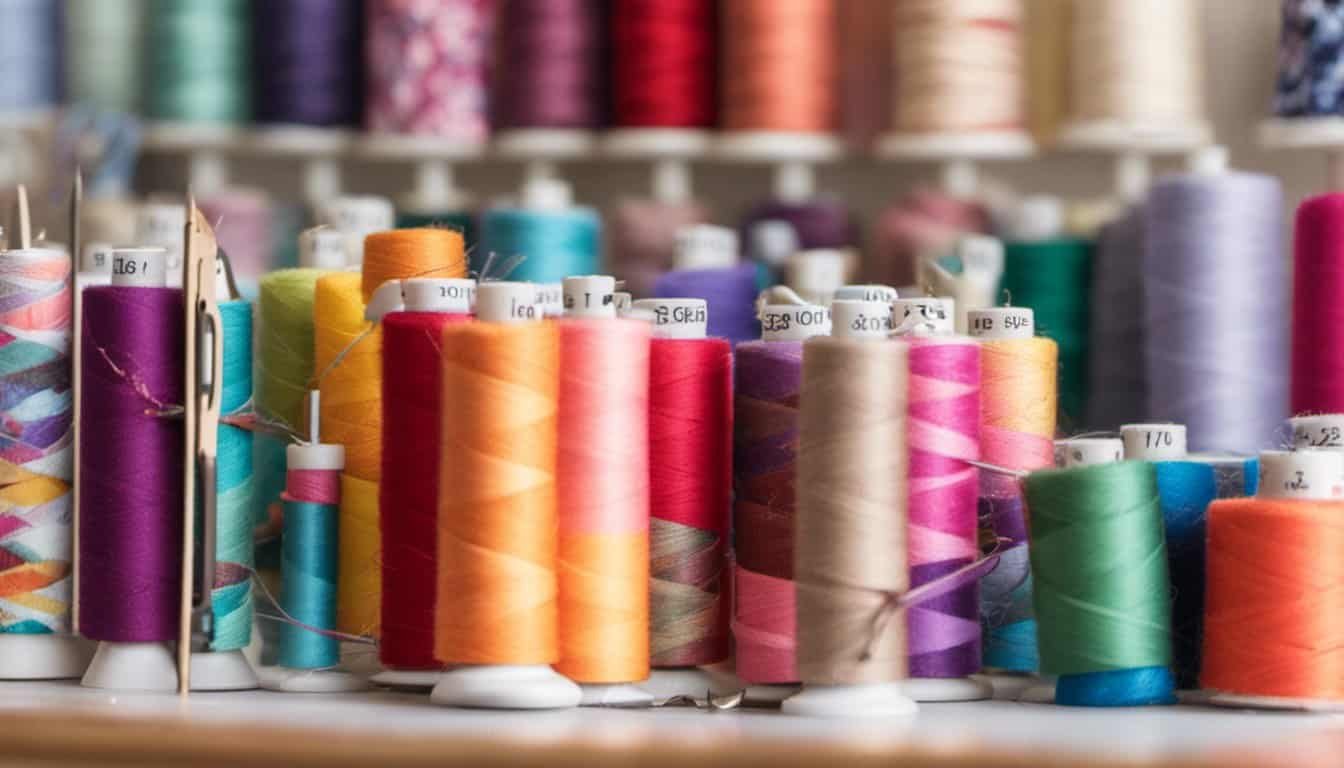
Silk thread
If you’re working with delicate and luxurious fabrics, silk thread is a perfect choice. It has a smooth and lustrous finish that adds a touch of sophistication to your creations. Silk thread is thin and lightweight, which makes it suitable for fine and intricate stitches. It’s commonly used in silk and satin garments, bridal wear, and high-end embroidery projects. The delicate nature of silk thread requires careful handling to prevent breakage.
Nylon thread
Nylon thread is known for its exceptional strength and elasticity. It’s a superb choice for sewing heavy-duty materials, such as canvas, leather, or upholstery fabrics. Nylon thread is resistant to UV rays, mildew, and chemicals, making it suitable for outdoor and marine applications. Whether you’re repairing a backpack or upholstering a chair, nylon thread ensures sturdy and long-lasting seams.
Remember, the type of thread you choose can greatly impact the end result of your sewing project. It’s important to consider the fabric, purpose, and desired look and feel of your creation when selecting thread. Investing in high-quality thread will ensure the strength and longevity of your stitches, resulting in professional-looking results.
Choosing the Right Sewing Thread for Your Project
When it comes to sewing, choosing the right thread is just as important as selecting the right fabric. The thread you use can greatly impact the strength, durability, and overall appearance of your finished product. So how do you choose the perfect sewing thread for your project? Here are a few key factors to consider:
1. Fabric Type and Weight
First and foremost, think about the type of fabric you’ll be working with. Different fabrics require different types of thread. For lightweight and delicate fabrics like silk or chiffon, cotton thread is a great choice due to its softness and ability to glide smoothly through the delicate fibers. For medium-weight fabrics such as cotton or linen, a polyester thread is a solid option as it offers both strength and durability. And if you’re working with heavy-duty materials like denim or canvas, consider using a nylon thread which boasts exceptional strength and resistance.
2. Purpose of Your Project
« Discover the Secret Sewing Machine Feet Every Sewist Must Have for Perfectly Professional Results
Unveiling the Revolutionary Secrets: How Automation is Transforming the Sewing Industry and Changing the Game Forever »
Consider the purpose of your sewing project. If you’re making something that will undergo frequent washing or heavy use, it’s best to opt for a thread that can withstand the test of time, like polyester or nylon. On the other hand, if you’re creating a decorative piece or something that doesn’t require a high level of durability, you can go for a more delicate thread, like silk, which adds a touch of sophistication to your final product.
3. Desired Look and Feel
Think about the look and feel you want to achieve with your project. The thread you choose can greatly affect the appearance of your stitches. If you want your stitches to be subtle and blend in with the fabric, choose a thread that matches the color of the fabric. But if you want to make a statement, consider using a contrasting thread color to create a bold and eye-catching effect.
Remember, investing in high-quality thread is always a good idea. Not only will it ensure the strength and longevity of your stitches, but it will also make your sewing experience more enjoyable. Cheap threads tend to break easily, leading to frustration and potentially ruining your hard work.
Popular Brands of Sewing Thread
When it comes to sewing, having the right materials and tools is essential. Choosing the right sewing thread is just as important as selecting the fabric itself. A good quality sewing thread can make a huge difference in the outcome of your project, ensuring durability and the ability to withstand regular wear and tear. In this section, we will explore some popular brands of sewing thread that you can trust for your sewing endeavors.
Here are a few well-known brands that have established a reputation for producing high-quality sewing threads:
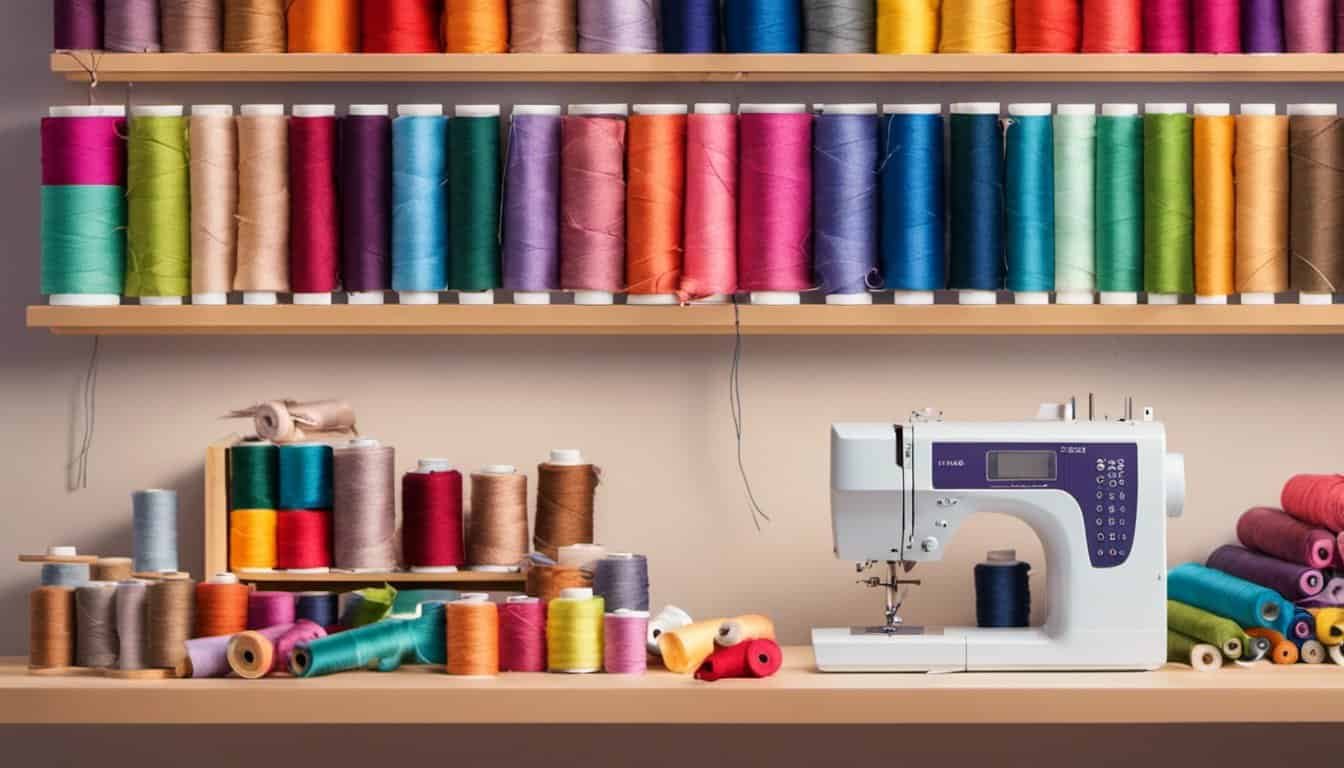
- Coats & Clark: With over 200 years of experience, Coats & Clark is a widely recognized brand in the sewing world. They offer a wide range of thread varieties, including cotton, polyester, and embroidery threads. Known for their durability, Coats & Clark threads are great for both machine and hand sewing projects.
- Gutermann: Gutermann is another trusted brand in the sewing community. They are known for producing high-quality threads that are suitable for a variety of fabrics. Gutermann threads are known for their strength, color selection, and excellent stitch quality. They offer different thread weights and specialty threads, such as silk and metallic threads.
- Mettler: Mettler is a Swiss brand that produces premium sewing threads. Their threads are known for their strength, smoothness, and consistency. Mettler offers a variety of thread types, including cotton, polyester, silk, and embroidery threads. Their wide range of colors ensures that you can find the perfect match for your project.
- Aurifil: Aurifil is highly regarded for its high-quality cotton threads, especially in the quilting community. Their threads are known for their fine, smooth texture and minimal linting. Aurifil offers a variety of thread weights and an extensive range of colors, making it easy to find the perfect thread for any sewing project.
Remember, while these brands are popular and trusted, it’s always important to consider the specific requirements of your project. Be sure to match the thread weight, fiber content, and color to your fabric and desired outcome.
Conclusion
Now that you have learned about the importance of selecting the right sewing thread for your projects, you are well-equipped to make informed choices. Remember to consider factors such as thread weight, fiber content, and color to ensure the best results.
By exploring popular brands like Coats & Clark, Gutermann, Mettler, and Aurifil, you have discovered a wide variety of thread types and their unique strengths. This knowledge will enable you to find the perfect sewing thread for any project, whether it’s a delicate embroidery piece or a sturdy garment construction.
So, the next time you embark on a sewing adventure, take a moment to evaluate your thread options. By choosing the appropriate sewing thread, you can enhance the durability, appearance, and overall quality of your creations.
Happy sewing!
